Carausius & Allectus
The Roman Empire degenerated into crisis and chaos from around AD 235 as the economy floundered and the rule of law broke down. For five decades there was a succession of emperors, usurpers and rebels most of whom were short lived and many of whom were assassinated. Inflation in the empire was rampant. The currency was debased with most of the silver coinage being replaced with bronze. The empire also faced several serious external threats.
In AD 284, whilst travelling back from Persia the emperor Numerian died unexpectedly. The soldiers accompanying the emperor proclaimed their commander, Diocletian, as the new emperor.
Diocletian instituted major reforms to try and save the empire. Since the time of Augustus the emperor had been deemed to be all powerful. By greatly increasing the number of provinces and delegating power down to their governors Diocletian instigated a more collegiate form of government. He also appointed a colleague, Maximian, a co emperor to help him administer the empire. Later this was increased to four thus creating a Tetrarchy.
Little is known of Carausius’ early life although he was of humble birth and was probably a native of Menapia, in modern day Belgium. Carausius chose a military career and by the mid AD 280’s had risen to high command. He appears to have rendered Maximian valuable service by helping put down a revolt by the Bagaudae in Gaul. Following the appointment of Maximian as co emperor in AD 286 Carausius was appointed commander of the Channel Fleet based at Boulogne. Carausius saw this as an opportunity for enrichment by taking booty from the Saxon and Frankish pirates after they had raided rather than preventing the raids in the first place. Instead of ridding the Channel of pirates he moved to Britain where he installed a new fortification system along the coast. He also proclaimed himself Augustus, emperor, setting up a breakaway Imperium Britanniarum. Coinage was issued which depicted Carausius as co emperor and also an equal of Diocletian and Maximian.
Maximian ordered the execution of Carausius but the expedition launched in AD 289 to oust him met with disaster. Carausius was then able to become a major thorn in Maximian’s side extending his rule across the Channel to include parts of Gaul. He was also able to re-establish a naval base in Boulogne. This situation lasted until AD 293 when the newly appointed western Caesar, Constantius, besieged Boulogne which eventually fell. This undermined Carausius authority and shortly afterwards he was assassinated by his chief minister Allectus.
Much of what is known of Carausius is known through his coinage. This was issued from 3 mints. London and Colchester in Britain and later from Rouen in Gaul. By issuing his own coins depicting him as Augustus his authority was enhanced for propaganda purposes. There is an antoninianus where he is depicted along with Diocletian and Maximian as one of 3 co emperors. An important innovation was the introduction of good quality silver denarii coins. These had not been issued for many years and predate by several years the issue of silver coinage by Diocletian. Whilst Carausius is often depicted as being coarse and thuggish the quality of some of his coinage can be excellent.
The inscriptions on his coins include, PAX AVGGG, the peace of 3 Augusti, or RESTITUTOR BRITANNIAE, Restorer of Britain. On his silver denarii the legend EXPECTATE VENI, Come long awaited one. There are also a number of medallions one of which has the reverse legend VICTOR CARAVSI AVG, The victory of Carausius Augustus. By using these legends & promoting the Secular games Carausius was representing a revival of traditional Roman virtues and the traditions of empire that had been instigated by Augustus 3 centuries earlier, sure to increase his popularity amongst the people.
ALLECTUS
Allectus was treasurer and chief minister to Carausius. Little is known of his early life and even his full name has not been recorded. This may not be surprising as most of the chroniclers of the time wanted to laud Constantius who eventually defeated Allectus and brought Britain back into the empire. Primarily Allectus is known for having assassinated Carausius shortly after his defeat at Boulogne in AD 293. Ascending the throne Allectus is sometimes perceived as being weak awaiting the retribution that would one day come from Rome. Massive foundations have been uncovered in London which date from Allectus reign. These suggest that Allectus may have been trying to fortify as well as establish London as the new capital in place of Colchester.
After his victory in Boulogne Constantius spent more than 2 years building up a fleet which was large enough to launch a two-pronged attack against Allectus. After the praetorian prefect Asclepiodotus set sail from the Seine for the Isle of Wight Constantius sailed from Boulogne into the Thames estuary enroute for London. Allectus thought that the invasion was taking place on the south coast and marched his army south. London was left largely undefended. When the armies met Allectus was defeated, possibly near Silchester, and killed. Although the remnants of Allectus army fled back to London Constantius had already arrived and staged a triumphal entry. The scene is depicted on the Arras medallion, which was later struck in Trier, to commemorate the victory. Without a leader the revolt collapsed and Britain was restored to Roman rule.
The coinage of Allectus, known in gold and bronze only, was struck at London and Colchester. In general the coinage is of reasonable quality, why there are no silver issues is uncertain, perhaps these exist but are yet to be discovered. The commonest denomination encountered for Allectus is the bronze half antoninianus or to give it its more commonly used name ‘quinarius’. This was struck at both mints in good metal, the reverse promoting the naval capabilities of this British usurper.
We deal with many coins of these popular British usurpers. We’d love to hear from you if you have something to sell. Be it a rare silver denarius of Carausius or unique bronze antoninianus, legionary issue or maybe even a whole collection, we can help you to achieve the best price for these coins.
We often buy these coins when they are offered for auction, testimony that we are the best buyers of such coins so cut out the middle man and get in touch today. You can email or phone, ask to speak to our specialist, John Philpotts.
info@silburycoins.com 01242 898107
Showing all 10 results
-
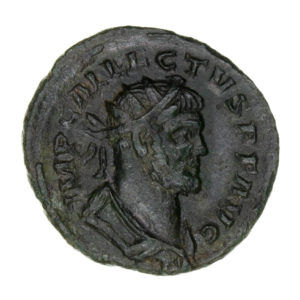
Allectus AD 293-296 Bronze Quinarius
£375.00Code: NR363
View Item -

Carausius (Usurper) AD 286-293 Billon Antoninianus
£695.00Code: NR116
View Item -

Carausius (Usurper) AD 286-293 Billon Antoninianus
£295.00Code: NR117
View Item -

Carausius (Usurper) AD 286-293 Billon Antoninianus
£175.00Code: NR119
View Item -
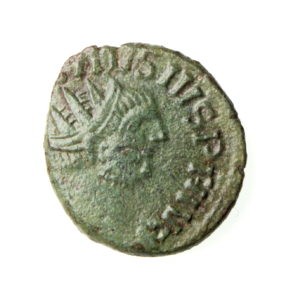
Carausius (Usurper) AD 286-293 Bronze Antoninianus
£67.00Code: PR671
View Item -
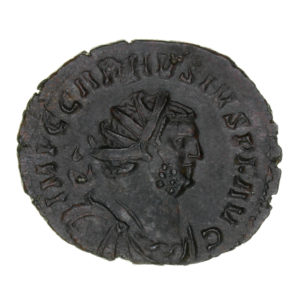
Carausius (Usurper) AD 286-293 Bronze Antoninianus
£495.00Code: NR362
View Item -
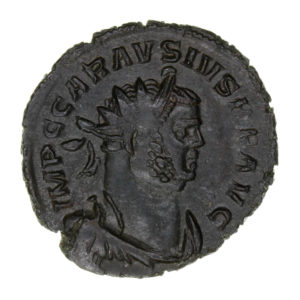
Carausius (Usurper) AD 286-293 Bronze Antoninianus London mint
£295.00Code: NR359
View Item -
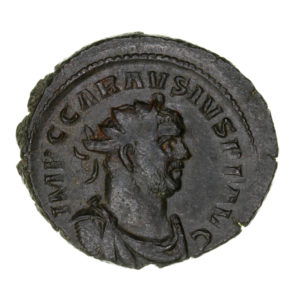
Carausius (Usurper) AD 286-293 Bronze Antoninianus London mint
£250.00Code: NR360
View Item -
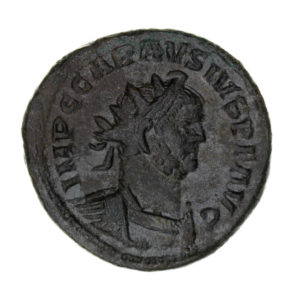
Carausius (Usurper) AD 286-293 Bronze Antoninianus London mint
£225.00Code: NR361
View Item -
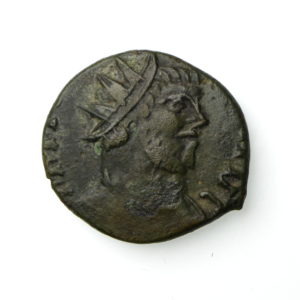
Carausius (Usurper) AD 287-293 Bronze Antoninianus Barberous
£67.00Code: PR043
View Item






